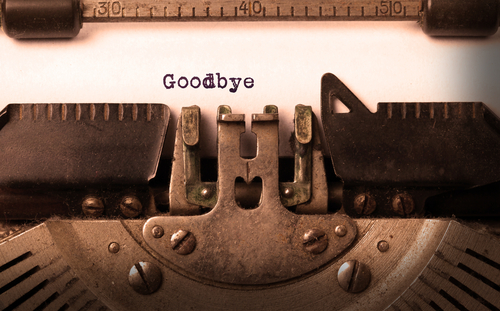
“Twenty years for now, you’ll be more disappointed by the things you didn’t do than the ones you did do.
So throw off the bowlines.
Sail away from safe harbor.
Catch the trade winds in your sails
Explore.
Dream
Discover.”
Knowing the right time to leave can be tricky.
Whether it’s a job, a relationship or a given situation, knowing when to go can be fraught with doubt, uncertainty and fear.
We leave jobs, move house and change roles many times over the course of our lives, which is part of the way we experience variety and explore new things.
The more we stretch our mental muscle looking for the next opportunity, the greater our ability to adapt and flourish.
One of the most important roles for a manager, leader or parent is to nurture and support those who will follow. In the natural succession of life this is a crucial survival skill to perpetuate a species or to ensure the continuity of a business or organisation.
Leaving leads to exploration and growth.
If we are stuck in a rut, in the wrong position or have simply outgrown a particular group, fear can hold us back from moving on for the wrong reasons. This is unhealthy for us as individuals and can lead to stagnation within a business community.
I remember at one of our son’s school, end of year assemblies, when an announcement was made; a much loved and well-respected teacher was leaving to take up a new position elsewhere. A well-known male tenor then walked onto the stage and sang “Con te partiro” (Time to say goodbye) accompanied by the school orchestra and choir.
The emotion was palpable as we sat there with lumps in our throat, silently wishing the young man all the best for his future, silently celebrating what he had done for the school and mourning his loss to this particular community.
Today that song still conjures up mixed feelings; sadness and happiness combined.
[youtube=://www.youtube.com/watch?v=f_JLkIOnq04&w=640&h=480]
Our brain is designed to keep us safe and that feeling of safety can lead to us preferring the status quo. The fear of leaving the familiar and comfortable prevents us from doing something different, even small things; from trying out a new restaurant, listening to a different genre of music or travelling to a far off destination. That’s where the support of another, whether a mentor, sponsor or teacher can help us to commit to a decision and take those first steps to something new.
Our brain loves novelty; it can be exciting, some times nerve racking and fun. Novelty drives our neuroplasticity; we form new synaptic connections, a bit like forming a whole new bunch of friends. The more synaptic connections we create the more neural pathways develop, which with practice and repetition become stronger and ultimately the new default pathway of choice. The more we practice, the easier it is to adapt, no bad thing when living on a planet of constant change.
And isn’t that what life is all about? Like a child learning to walk for the first time, it’s about standing up, trying it out and being willing to fall over and make a mistake, because the next step might be the one that leads to our greatest success.
It was Nolan Bushnell the inventor of Atari who said, “The best thing in life is to have something new that is easy to learn but hard to master” which makes sense. Try out lots of things, pursue those you love the most and leave behind those that no longer serve you.
Are you ready to explore, dream, discover?
How do you know when it’s time to leave?
Are you looking forwards to your next big adventure?
I’d love to hear your thoughts.


Definitely food for thought here. Thanks Jenny.